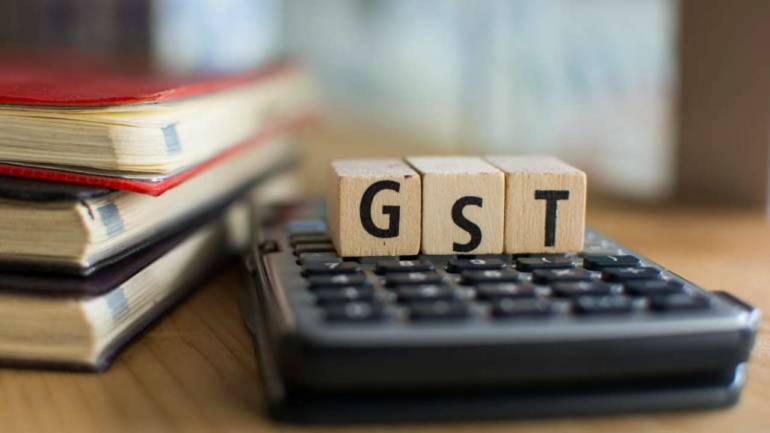The scheme may have a detrimental effect on real estate prices due to the blockage of input tax credit
A ministerial panel headed by Gujarat deputy chief minister Nitin Patel will look into the possibility of rationalisation of GST rate for the real sector besides formulating a composition scheme — a preferential scheme under GST extended to consumer centric sectors or industries. The move follows the GST Council meeting on January 10 that referred matters pertaining to the sector to the Group of Ministers due to lack of consensus.
The GoM will now decide on the issue of reducing the current GST levied on real estate which is 12 percent to five percent.
Tax experts say that while composition schemes may look attractive, one needs to do a thorough analysis to weigh whether a reduced GST rate of 5 percent without input tax benefit is better than a standard rate of 12 percent with full input tax credit.
At present, GST is levied at an effective rate of 12 percent (standard rate of 18 percent less a deduction of six percent as land value) on premium housing and effective rate of eight percent (concessional rate of 12 percent less a deduction of four percent as land value) on affordable housing on payments made for under-construction property or ready-to-move-in flats where completion certificate has not been issued at the time of sale.
However, GST is not levied on buyers of real estate properties for which completion certificate has been issued at the time of sale.
“If the government reduces the eight percent GST rate on affordable housing to five percent without extending the benefit of input tax credit, sale prices may increase and real estate developers may pass on the burden/increase in price of apartments for most low and middle income projects. This may impact the government’s affordable housing scheme,” says Harpreet Singh, Partner, KPMG.
Builders are hoping that the government will allow input tax credit on under-construction residential properties even after reducing the GST rate to five percent.
What is a composition scheme?The concept of composition scheme is not new under GST regime. Such a scheme existed under VAT laws, service tax laws and other indirect tax laws. Composition scheme refers to a scheme under which small taxpayers can discharge a ‘composite’ tax liability at certain fixed percentage of their turnover/ sales. Such a scheme is generally effectuated with the objective of putting lower tax burden and lesser compliance on small vendors.
One view is that if the composition scheme is introduced in the real estate sector, it may result in reduction of prices of properties owing to lower rate of tax and bring higher degree of certainty regarding compliance under GST law.
Also, under the composition scheme, the taxpayer is not allowed to collect tax from customers for inputs used. Thus, if the proposal for composition scheme for reality sector receives consent, buyers cannot be charged extra on account of GST paid for the raw material (inputs) used by the builder.
But it may have the same detrimental effect that the composition scheme has had on non air-conditioned restaurants, say experts.
The other view is that if GST rate on under construction properties is reduced and input tax credit to developers is denied, the overall burden on home buyers may actually increase if the benefit on taxes paid for raw material (input tax credit) used has been done away with. If input tax becomes a cost to the developer, he may pass it on to the buyer, says Singh.
The scheme might have detrimental effect due to the blockage of input tax credit. Construction material, input services and capital goods attract GST at the rate of 18 percent. Thus if the credit chain is blocked, then GST paid on inward supplies shall form part of the cost which will result in increase in the cost of construction, says Kapil Sharma, Partner, Lakshmikumaran & Sridharan.
Further, the builder might incorporate the GST portion in the price of property as a dealer under composition scheme is not allowed to recover tax amount from customer, he says, adding due to these reasons, the scheme may have a similar detrimental effect as in case of (non-airconditioned) restaurants where consumers are charged GST at the rate of 5 percent.
What should be ideal composition scheme?An ideal composition scheme would be the one where the rate of tax is fixed taking into consideration the increase in cost on account of blocked input tax credit and tax component on sale of property that builders may try and recover from the buyers by including it as part of the total price.The scheme should be such that it results in reduction of tax burden (from the present 8 percent to 12 percent to 6 percent for instance).
Also, the builder should have an option to pay tax under the composition scheme but the same should not be made obligatory, adds Sharma.
GST replaced a plethora of age old 17 central and state taxes and 26 cesses in 2017. GST was seen as a tax that would liberate the taxpayer from the evils of cascading, multiplicity of levy, unwarranted litigation, compliance burden, among others.
GST on under-construction properties was a severe hurdle in 2018, and the possibility of a possible GST rate cut in late December literally froze property buying decisions for many. “It bears remembering that the modest growth numbers we witnessed last year were significantly led by sales of ready-to-move properties – not only because they are exempt from GST, but because incessant project delays have taught buyers to be wary of under-construction projects, said Anuj Puri, chairman – ANAROCK Property Consultants.
Issues like ambiguity on treatment of Joint Development Agreements (JDA), taxability of Transfer of Development Rights (TDRs), restriction on availability of credit in case of works contracts resulting into immovable property (other than to contractor), allowing centralised registration etc still need to be addressed under GST.
The GoM is expected to also analyse tax rate of GST, including issues/challenges in view of the proposal for shoring up the real estate sector. The panel would examine the legality of inclusion/exclusion of land or any other ingredient, in composition and suggest valuation mechanism. It would also examine various aspects of GST on Transfer of Development Rights (TDR) and Development Rights in a joint agreement and suitable model, a finance ministry statement issued last week has said.
vandana.ramnani@nw18.com















